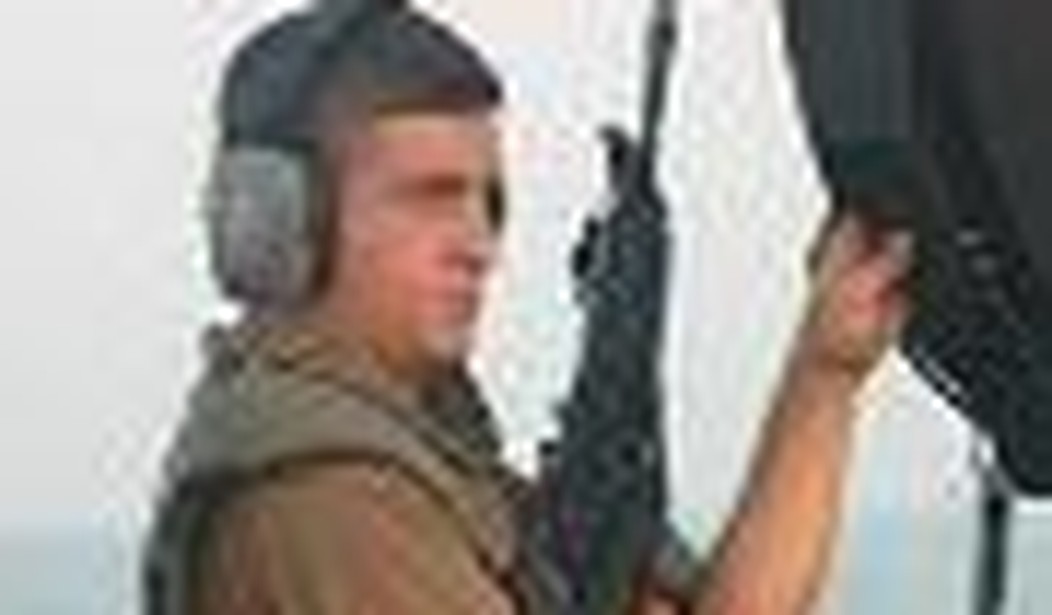Captain Richard Phillips was the first American to be kidnapped by pirates at sea in 200 years. On Easter Sunday, at 7:19 pm local time, after a swift and deadly firefight, U.S. Navy SEAL snipers set Captain Phillips free. Three of the four pirates who held the American at gunpoint adrift in a life raft are now dead. The fourth pirate, allegedly negotiating with the FBI from somewhere else, is in U.S. custody. It’s a storybook ending — sort of. The real ending doesn’t come until the 200 mariners still being held hostage in Somalia’s lawless ports are set free.
Now is the time for action. President Obama should take command and control of the situation and spearhead a multinational operation to free these men and women — victims first and foremost of piracy, but also now victims of international inertia.
In December, the U.S. State Department issued an edict saying its top priority in Somalia is “to ensure the protection of shipping lanes and to bring pirates to justice.”
In reality, it is doing neither.
By sending the U.S. Navy to the aid of Phillips after he was taken hostage, the message to the pirates was don’t mess with Americans. Bravo.
Prior to this, the U.S had done a great job setting policy, but very little to enforce policy. If we’re willing to rescue our own citizens but unwilling to assist in rescuing 200 others just because they’re not Americans, then what we have is a failure in American principle as well as a failure in American policy.
In 1993, few Americans had any idea where Somalia was or why U.S.-led action there was important to the international rule of law. Warlord Mohamed Farah Aidid was senselessly starving his own people. In October of that year, U.S. forces tried to capture Aidid. In doing so, 19 U.S. soldiers were killed and another 84 were wounded. The incident, called the Battle of Mogadishu, would become known in popular culture as “Black Hawk Down.” When the bodies of U.S. soldiers were dragged through the streets of Mogadishu, many Americans were horrified. If the average citizen suddenly knew where Somalia was on a map, its far away location seemed to underscore the idea that what went on inside a coastal African nation mattered little to Americans in front of their television sets back home.
In reaction to American dismay, then-President Bill Clinton pulled U.S. forces out of the region and Somalia spiraled into anarchy. Osama bin Laden — whose operatives had trained the Somali fighters how to shoot down the U.S. helicopters — declared America “a paper tiger.” America was all bark and no bite, Bin Laden said. His words emboldened jihadists around the world, from Somalia to Saudi Arabia.
President Clinton’s cut-and-run policy fueled the embers of terrorism like fire in dry grass. Bin Laden’s followers organized their own rank and file with the conviction that they could draw America into battle anywhere on the globe and then send its soldiers running after only a few Americans were killed. Wherever U.S. soldiers decided to stay would become their graveyard. These terrorist principles remain in play today.
Today’s Somali pirates may not be al-Qaeda operatives — at least not yet. But you can be sure al-Qaeda is watching how things are unfolding at sea off the coast of a territory where they laid their roots of jihad. Somalia is the new Afghanistan and al-Qaeda in East Africa is working overtime to control the land.
We should thank Captain Richard Phillips for the lesson his actions transmitted to those watching from near and afar. Phillips acted with principle. He did as a ship’s captain should: he offered himself up in exchange for the safe return of his crew. Whether this was an easy choice for Phillips or a difficult one, we don’t yet know. But it was the right choice. Phillips renounced his personal safety for the principle of leadership. In doing so, he set a precedent of sacrifice.
Many Americans still think what happens in Somalia should stay in Somalia. They think that the pirates are only interrupting a small portion of maritime trade, not enough to justify a response with military might. Many believe the U.S. should stay out of these kind of conflicts. But the recent movements of the U.S. Navy in the region suggest another possible path.
On Friday, Navy officials confirmed that the USS Boxer had moved into position for action in Somalia in the event that the pirates tried to take Captain Phillips onto land. With this, came the clear message that President Obama was ready to put U.S. boots on the ground — the first time since former President Clinton’s ignominious failure there in 1993. The USS Boxer is an amphibious attack ship, among the largest in the world. It was not dispatched to take on the four, sandal-wearing pirates holding Captain Phillips in a 28-foot raft (that was the USS Bainbridge’s job). The USS Boxer was in position to do battle.
With a crew of 1,000, the USS Boxer has onboard more than twice the number of U.S. soldiers involved in the U.S.-led operation in Somalia in 1993. Its two dozen helicopters, fleet of fighter jets and missiles, and hospital outfitted with 600-beds sent the message from President Obama via the Pentagon that when you capture an American, the American military is not a paper tiger anymore.
It’s time for the commander in chief of the U.S. Armed Forces to send the same message that Captain Richard Phillips brought to the world. That sacrifice has its rewards.
The 200 mariners held hostage in Somalia should be freed in a U.S.-led multinational effort. Order at sea should be restored and the pirates should be brought to justice. If not, the U.S. State Department — under the command of Secretary of State Hillary Clinton — will be seen as Osama bin Laden’s newest paper tiger.









Join the conversation as a VIP Member